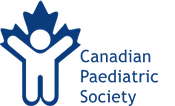New data on medical cannabis, Lyme Disease, Zika and eating disorders highlighted in the Canadian Paediatric Surveillance Program’s 2017 Results
OTTAWA — The Canadian Paediatric Surveillance Program (CPSP) is releasing new data about the use of cannabis for medical purposes and the incidence of Lyme disease, Zika-associated viruses and eating disorders in children and youth.
2017 data from surveillance studies and one-time surveys show:
- 38% of Canada’s paediatricians who responded to a survey on medical cannabis use reported being asked by a parent or adolescent patient in the past year to prescribe cannabis for medical purposes.
- With tick populations spreading further into parts of southern Canada, the burden of Lyme disease among children and youth is expected to increase. Over the three years of reporting, the majority of cases identified were located in Ontario and Nova Scotia.
- Complications associated with Zika virus, including microcephaly, are rare in Canada. Continued data collection into 2019 will help researchers better understand and monitor the impact of Zika in Canada.
- Eating disorders are affecting Canadian children as young as 5 years old, and one type in particular, known as avoidant/restrictive food intake disorder or ARFID, has little to do with self-image. Children with ARFID have significant eating disturbances due to lack of appetite, aversive reactions to texture, smell, or appearance of food, or fears related to eating, such as choking.
The CPSP is a network of 2,700 Canadian paediatricians and paediatric subspecialists. It is a partnership between the Public Health Agency of Canada and the Canadian Paediatric Society. Through disease surveillance, the program generates valuable new knowledge to inform clinical research, practice and policy related to important rare conditions and evolving child health threats. Along with knowledge translation tools, including monthly tips on adverse drug reactions, the CPSP provides timely information to researchers, doctors, and health policy makers on both emerging and persisting health conditions affecting children and youth.
“Lack of information on rare diseases or severe complications is challenging for children and their families,” said Jonathon Maguire, CPSP Chair. “Being able to offer knowledge gained through our surveillance helps families to better understand these conditions and provides evidence for doctors on appropriate evaluation and treatment.”
To access the CPSP 2017 Results, click here.
Related Links
About the Canadian Paediatric Society
The Canadian Paediatric Society is a national advocacy association that promotes the health needs of children and youth. Founded in 1922, the CPS represents more than 3,300 paediatricians, paediatric subspecialists and other child health professionals across Canada.
Last updated: Jul 12, 2018

